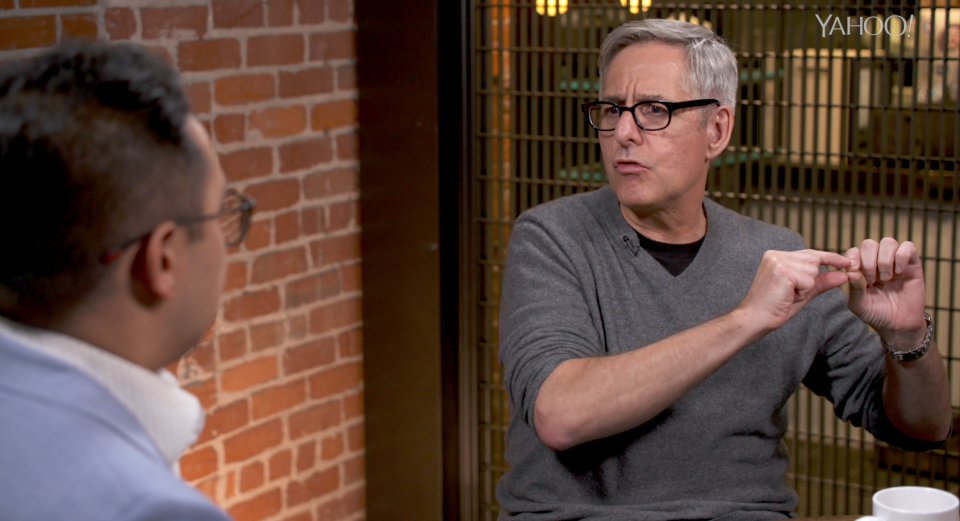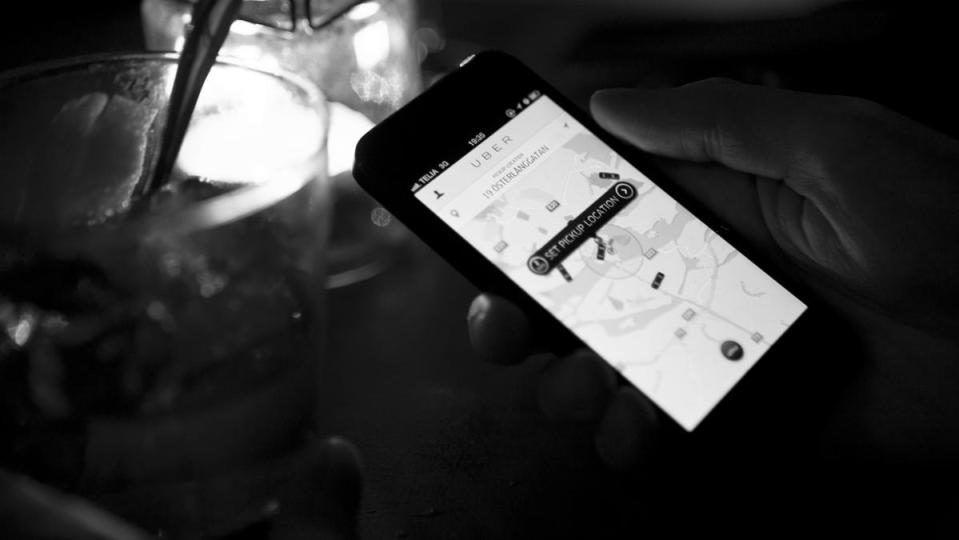The No. 1 thing tech giants can do to improve work culture
To call tech work culture “problematic” would be an understatement. Over the last two years, tech companies have been accused of having office environments that are brutal, unforgiving, and misogynistic.
Some work cultures have also been criticized for their treatment of workers. Silicon Valley companies such as Uber, Instacart, Postmates and TaskRabbit are all prominent players in the gig economy, which enlists independent contractors to do much of the heavy lifting — or in Uber’s case, all the driving.

Veteran journalist Dan Lyons has been a longtime critic of tech and the industry’s unique foibles and eccentricities. In his most recent book, “Lab Rats: How Silicon Valley Made Work Miserable for the Rest of the Us,” Lyons argues these companies should rethink their strategies around gig economy workers.
“I would like to see the gig economy have to stop doing this mess, because it’s all a lie,” Lyons told Yahoo Finance in a recent wide-ranging interview. “They know they should be employees — they are employees. They know what they’re doing. They could get away with it in 2008 after the big crash, and suddenly all these people were thrown out of work and they had nothing. Then Silicon Valley said, ‘Oh, we’re gonna throw you a life raft: you can be an Uber driver or a task rabbit. You’re a startup, you’re the brand of you. It’s like, ‘No, you’re a taxi driver, and you’re getting screwed, you know.’
‘No. People don’t want to be employees’

Since Uber’s founding in 2009, for instance, the majority of the company’s workforce — drivers, namely — have been independent contractors. They aren’t paid traditional hourly wages or annual salaries but instead, are paid contingent upon the rides they give and tips from passengers. According to a study published by the Economic Policy Institute in May, the average Uber driver earns an average of $11.77 per hour from rides, which is far less than the $32.06 average hourly wages of private-sector workers and even less than the $14.99 hourly wages of workers in the lowest-paid major occupation: service occupation workers.
That figure also doesn’t account for out-of-pocket expenses like gas, car insurance and repairs. That arrangement, however, saves Uber money since it doesn’t have to cover benefits like health insurance and sick leave.
The arrangement has frustrated hundreds of thousands of Uber drivers who have sued for better pay and benefits but made little progress. This September, a federal appeals court barred some 240,000 drivers from suing Uber as part of a class action lawsuit challenging their worker classification as contractors.
“Uber keeps settling these lawsuits, spending lots of money and then says, ‘No. People don’t want to be employees. They like the freedom.’ Well, [if] they keep suing you trying to become employees, I think they want to be employees.”
The costs of making Uber’s drivers full-time employees, however, would not be insignificant, given there are 3 million-plus Uber drivers on the road this year and Uber is available in over 600 markets worldwide.
Raising fares
One way to offset the costs of such a big move? Raise fare prices, which would prove a controversial but ultimately beneficial move. Uber would likely boost morale across the majority of its workforce. That’s a boon for a company like Uber which is still repairing its old, tarnished image as a punishing workplace.
“Even if it meant that the price of an Uber went up, if they say, ‘Well, we’ll have to pass it on to the consumer, I’m like, ‘okay that’s fine,’” Lyons adds.
And while it doesn’t look like Uber will change course any time soon regarding the employment status of its drivers, freelancers are expected to make up 43% of the American workforce in 2020 by some estimates — up from 34% in 2016.
But it is possible. Lyons points out that another on-demand service, the New York-based Managed by Q, offers businesses cleaning, maintenance and supply replenishment services by full-time employees.
“Uber doesn’t even make money now, right? So maybe they would argue, ‘If we have to pay people better, then we’re really screwed.’ But I do think it’s very disingenuous, and it’s that gig economy model. That’s one public policy thing I think would be fantastic to enforce.”
Fantastic to enforce, but whether it’s likely is a question only the profit-hungry tech giants can answer.
—
JP Mangalindan is the Chief Tech Correspondent for Yahoo Finance covering the intersection of tech and business. Email story tips and musings to [email protected]. Follow him on Twitter or Facebook.
More from JP:
